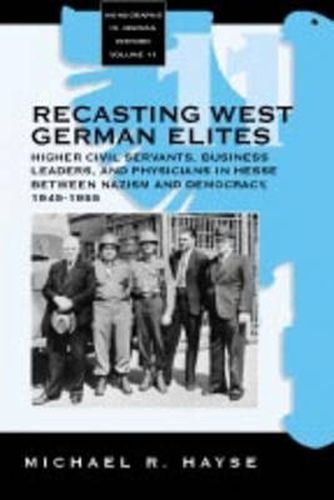Readings Newsletter
Become a Readings Member to make your shopping experience even easier.
Sign in or sign up for free!
You’re not far away from qualifying for FREE standard shipping within Australia
You’ve qualified for FREE standard shipping within Australia
The cart is loading…






The rapid shift of German elite groups’ political loyalties away from Nazism and toward support of the fledgling democracy of the Federal Republic, in spite of the continuity of personnel and professional structures, has surprised many scholars of postwar Germany. The key, Hayse argues, lies in the peculiar and paradoxical legacy of these groups’ evasive selective memory, by which they cast themselves as victims of the Third Reich rather than its erstwhile supporters. The avoidance of responsibility for the crimes and excesses of the Third Reich created a need to demonstrate democratic behavior in the post-war public sphere. Ultimately, this self-imposed pressure, while based on a falsified, selective group memory of the recent past, was more important in the long term than the Allies’ stringent social change policies.
$9.00 standard shipping within Australia
FREE standard shipping within Australia for orders over $100.00
Express & International shipping calculated at checkout
The rapid shift of German elite groups’ political loyalties away from Nazism and toward support of the fledgling democracy of the Federal Republic, in spite of the continuity of personnel and professional structures, has surprised many scholars of postwar Germany. The key, Hayse argues, lies in the peculiar and paradoxical legacy of these groups’ evasive selective memory, by which they cast themselves as victims of the Third Reich rather than its erstwhile supporters. The avoidance of responsibility for the crimes and excesses of the Third Reich created a need to demonstrate democratic behavior in the post-war public sphere. Ultimately, this self-imposed pressure, while based on a falsified, selective group memory of the recent past, was more important in the long term than the Allies’ stringent social change policies.